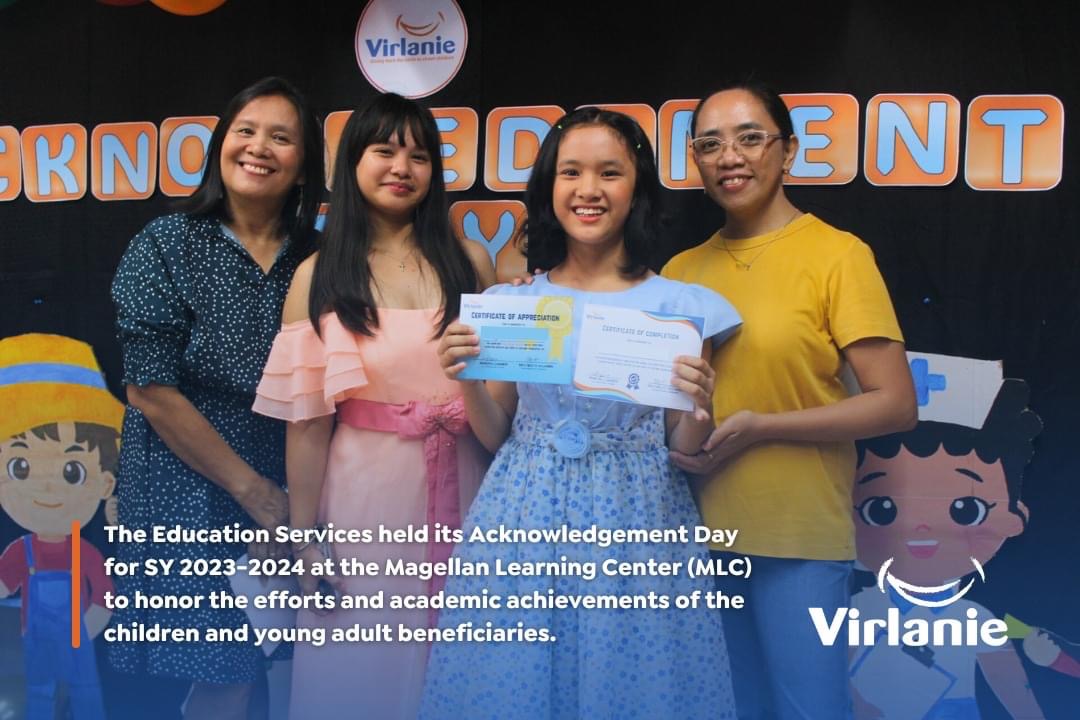
“Education knows no age,” said Julio*, 16, now a Grade 4 student.
Julio is a former street child. He used to roam around the streets of Metro Manila. At 11, he had never been to school. But his dream of finishing his studies never faded. When he lost his parents, and his grandmother was no longer capable of taking care of him, he was welcomed at Virlanie. This was the only time he was able to go to school.
Julio was among the 4 million out-of-school Filipino children. According to the 2013 Functional Literacy, Education, and Mass Media Survey (FLEMMS), one in every ten Filipino children are not attending school. They do not have access to formal basic education (Grades 1-6 and Year 1-4). Virlanie recognizes the need to reach out to out-of-school children and youth to help them complete their basic education in a mode tailor-fit to their identified needs.
Addressing challenges through non-formal education
Julio is a very good student; however, as relayed by his adviser, he is quiet in class and sometimes gives way to younger students during recitations although he knows the answer. He gets perfect scores in his examinations. When asked why he refuses to actively participate in class, he answered, “because I’m much older compared to my classmates, they always tease me.” Because of this, Julio gets demotivated to go to school. Virlanie social workers suggested letting him take the Philippine Educational Placement Test to be accelerated to a higher grade level.
Preparing for Alternative Learning System (ALS) integration
Many street children like Julio face the same problem when they go to formal school. Some would not even go to school because they are afraid to be teased. It is because of this that Virlanie partnered with the Department of Education (DepEd) – Bureau of Alternative Learning System through the Director’s office – Dr. Felicimo Trongco, to forge ALS for the Foundation. ALS will be implemented in the Foundation through its Magellan Learning Center (MLC).
ALS serves as a substitute and practical option for Filipinos who do not have or cannot access formal education in schools. ALS has two major programs: the Basic Literacy Program and the Continuing Education Program – Accreditation and Equivalency. These are modular and flexible programs. This means that the learning can take place in a setting that is most convenient for the learners.
Virlanie believes that establishing the system in the Foundation will reach more street children and will help in addressing their specific educational needs. Hence, once the Foundation is fully equipped to implement the system, Julio can take reviews under the ALS program and also take the test to be accelerated.
In preparing the integration of ALS, 39 Virlanie staff were trained to become ALS Instructional Managers last August 16-18. It was facilitated by Dr. Felicino Trongco, Mr. Joselito Pogoy, Jr., and Dr. Roger Morelos.
Virlanie fights for children like Julio and continues to give them all the necessary aid to provide them with their educational needs. Through its supporters, Julio and other street children are given the chance to become independent and reach for their dreams.
*Name changed for protection